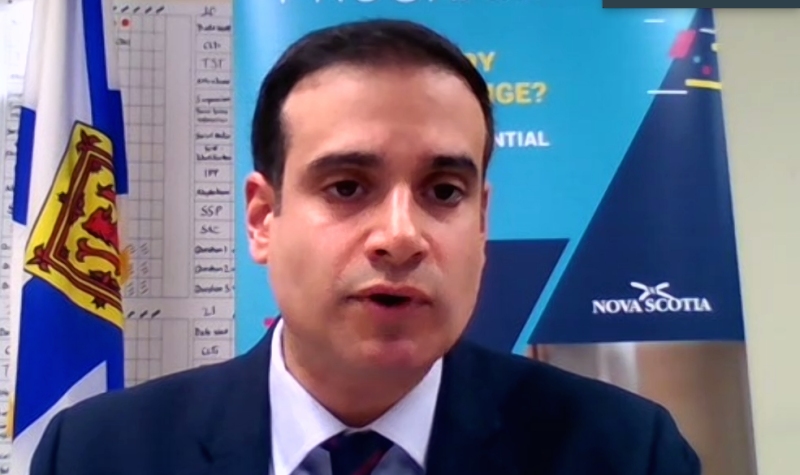Nova Scotia is buying computers for students and upgrading school wireless networks in order to continue to educate kids through COVID-19.
Education and Early Childhood Development Minister Zach Churchill announced $21.5 million from the federal Safe Return to Class Fund will be used to address concerns raised by students, teachers and parents about online and computer access during the provincial lockdown this spring.
Churchill said close to 30,000 respondents submitted their experience with at-home education.
“It was clear that the experience was different from school to school, teacher to teacher, from home to home. So this year we’ve brought in some standards for at-home learning for teachers and support staff,” said Churchill. “We have guidelines in place to help direct them in terms of how they approach their learning. We have enhanced capabilities now with students having access to technology and also teleconferencing as well, for students who don’t have access to the internet.”
Churchill said the department has already secured the purchase of 24,000 Chromebooks. The province has received 3,000 of those and the remaining 21,000 units are expected in December. They also hope to buy another 8,000 Chromebooks in the new year.
The education minister said it will be up to the regional centres across Nova Scotia to determine where they will be needed.
“Our regions have done work to identify which households, which students, don’t have access to the tech and those will be the folks that receive the technology. This is about ensuring that there’s not a digital divide in our education system, that all of our students have equitable access to the tools they need to learn and succeed even in an at-home learning environment,” said Churchill.
The province is also improving wireless connectivity and system stability at schools through the purchase and installation of new hardware including: firewalls, fibre-optic lines, servers and wireless routers.
Ten new full-time positions are being created to install and facilitate the upgrades.
The education minister said the majority of schools in Nova Scotia do have access to high-speed internet and those with slower speeds will be the target of the upgrades.
For students trying to complete their studies without high-speed access at their homes, Churchill offered a couple of alternatives to submit their work for evaluation.
“One option includes being able to utilize, by appointment, the school facility, even during a blended learning situation where they will have access to a safe learning space with internet and materials,” said Churchill.
The education minister said the program piloted in the spring, which allowed students to submit their work through a USB stick will also be available and those students will have access to devices with USB capabilities.
Should the province need to move to a blended model that would see some students move to at-home learning the biggest change will have nothing to do with technology.
“Everyone will be graded,” said Churchill. “That’s different from last year. We know that helps with motivation in terms of staying engaged with school work, even at home.”
The education minister said figuring out ways to educate in a pandemic has forced everyone to revaluate how things are done.
“That’s the silver lining here is this pandemic has forced us to take a real look at our tech capacity and assess who has access to digital learning tools and who doesn’t,” said Churchill. “I don’t see us moving back from this. In fact, I see us enhancing our ability to utilize technology in the learning environment at school and at home for the long run.”
Churchill said the upgrades have already begun and he hopes the work will be completed in every school in the province by the end of the school year.
Reported by Ed Halverson
E-mail: edhalversonnews@gmail.com
Twitter: @edwardhalverson


